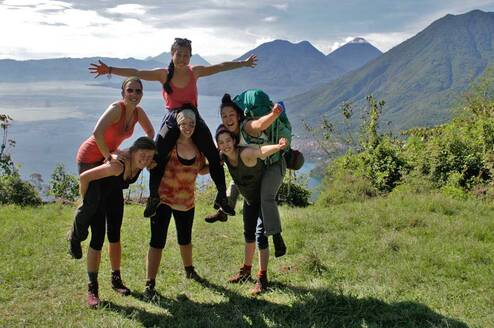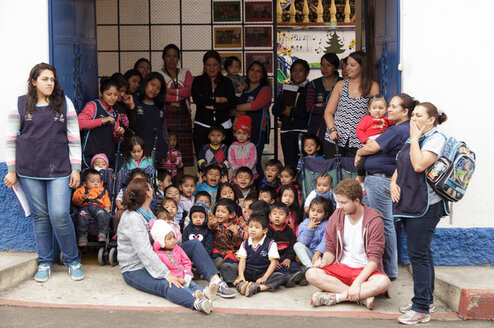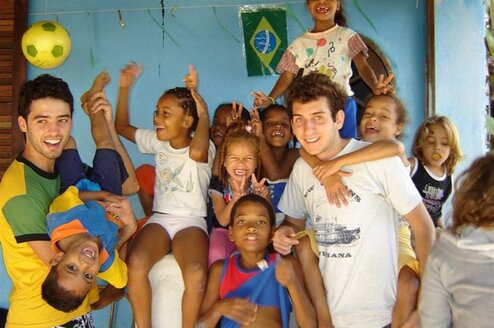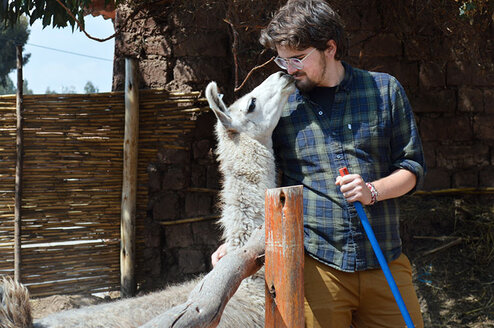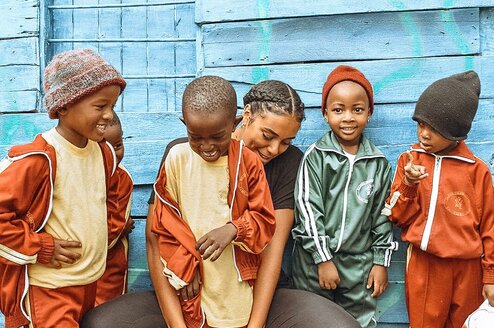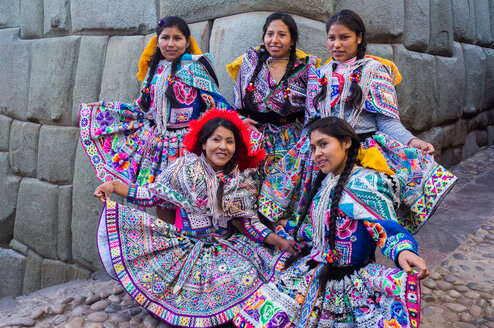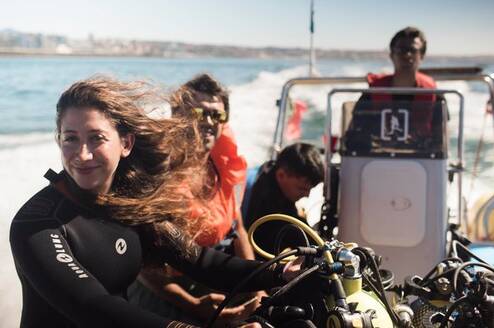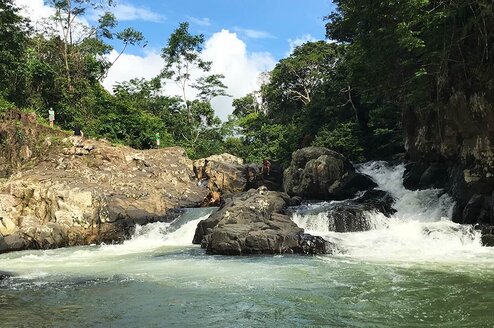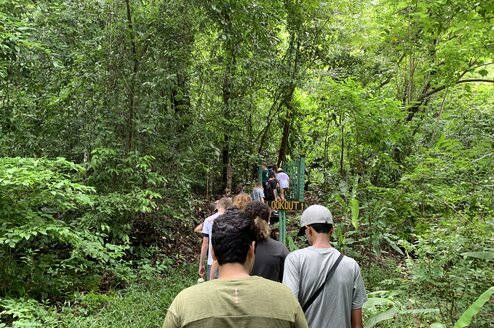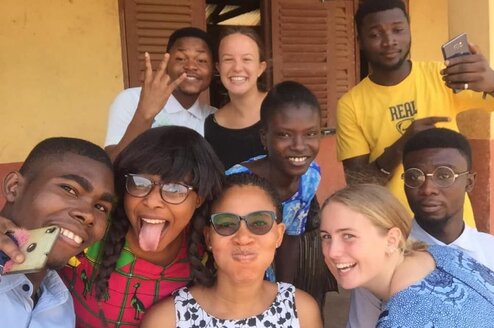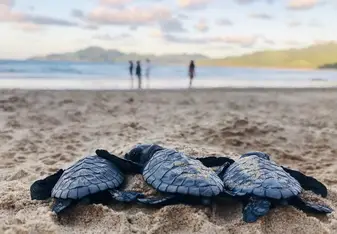Reforestation Volunteer Projects Abroad
Reforestation Volunteer Projects
Pagination
About
Do you love the great outdoors, want to see forests flourish, and don’t mind getting your hands a little dirty? If so, tree planting might be the right volunteer program for you. One tree at a time, you can grow new forests and help restore areas that have been affected by deforestation -- which, sadly, occurs in much of the world. There are a variety of different and worthy program types in which you can volunteer.
Tree planting volunteer placements involve many different responsibilities, depending on the program you choose and the region’s needs. Your responsibilities could including working in a tree nursery, educating communities on sustainable farming practices, working with wildlife rescue teams, or helping with reforestation and planting trees. Tree planting programs often overlap with poverty reduction and general community development initiatives, as well.
Whatever you end up choosing, having the desire to save the planet is a commendable goal, especially when an estimated 18 million acres of forest are being cleared each year.
Where to Go
Forests cover a whopping 31% of the world's land surface, but that number is steadily shrinking due to deforestation, as forests worldwide are being cleared at an unfathomable rate. Trees help us battle climate change, give us oxygen to breathe, as well as provide us with paper and numerous other tools and materials. There are opportunities in basically every region of the world for tree planting and environmental conservation work.
Guatemala
Guatemala is home to many conservation initiatives, particularly regarding rainforest conservation work. Reforestation work is important in Guatemala, and throughout Latin America, as many nature preserves face increasing threats from logging, large-scale animal agriculture, oil companies, and more.
Guatemala is a hotspot of biodiversity, filled with ancient rainforests, lush jungles, and a diverse array of local plant and animals species. Your help is needed to ensure a future for these lands and the species that thrive here. By choosing to volunteer in Guatemala, you’ll have a chance to work in a unique environment alongside other enthusiastic nature lovers.
Uganda
Uganda, like many other countries throughout Africa, suffers from drought, deforestation, and a lack of resources. Many volunteer abroad programs aim to turnaround decades of extensive deforestation caused by slash and burn farming and unsustainable logging, among other things.
As a volunteer, you will have a hands-on role in maintaining the land to prevent future deforestation, as well as creating new forests from the ground up. You can work closely with families, perhaps teaching sustainable farming practices and spreading awareness about the importance of maintaining surrounding flora and fauna. Many programs focus on helping families and communities plant fruit trees to battle hunger and poverty. Fruit trees help in many ways, by providing nutrition and income, and they also help clean the air and soil.
Indonesia
Indonesia is a beautiful country, consisting of thousands of islands and picturesque landscapes, partly-covered in magical rainforests that support an astounding number of unique plant and animal species. A significant amount of land has been cleared on the islands of Borneo and Sumatra in order to support pulp companies and to plant palm trees for palm oil. The size of the deforestation is almost unimaginable, causing massive environmental and social effects.
The damage is devastating and has extreme consequences. Statistics suggest that Indonesia has already lost up to 72% of its forests. One of the most dramatic impacts is the loss of millions of animals species, particularly the orangutan, who are being killed or forced to relocate. Deforestation on such a large scale also drives climate change. Volunteer programs in Indonesia range from rainforest conservation to wildlife rescue to tree planting.
Madagascar
Madagascar is home to some of the most biologically diverse habitats on earth. Volunteers can work in a variety of programs, including reforestation projects and rainforest conservation initiatives. Most people who volunteer in environmental conservation and similar programs have a deep love and respect for wildlife and nature, and Madagascar is the perfect place to come to get up close and personal with some of the world’s most unique and vulnerable species.
While you’ll be working hard at reforestation efforts, you’ll undeniably be learning a lot during your time here. Tree planting work often involves working with the local community, growing and planting trees in areas most affected by habitat loss, so you can learn a lot about the threats that local plants and animals face. Sadly, it is estimated that 90% of Madagascar’s forest has already been lost. But, with your help, it's not too late.
Program Types
Trees are vital to human life. According to the World’s Resources Institute, more than 80% of Earth’s natural forests have already been destroyed. Demand for oil, space for animal agriculture, palm crops, and logging are increasingly putting the world’s remaining forests at risk, which has dire consequences on plant an animal species, local communities, climate change, and more.
This is where you come in. Luckily, there are many programs around the world where you can volunteer, prompt change, and make a difference.
Environmental Conservation
Conservation work is somewhat of a broad term that can encompass many duties. Although a lot of conservation work is usually hands-on, another crucial part of it is raising awareness about why the environment is important and why it’s necessary to protect it.
While working as an environmental conservation volunteer, you may be expected to teach about the environment in schools, run workshops, and help train local communities in sustainable farming practices.
Reforestation
All across the world, habitats face increasing threats from the most pressing environmental issues of our time, including large-scale farming, logging, ranching, and climate change. The main component of reforestation is restoring forests and creating new ones, which becomes a reality due to the hard work of volunteers who plants thousands upon thousands of trees.
Trees start as saplings, of course, so you might also end up working in a nursery and caring for the trees before they’re even ready to be planted. Reforestation also deals with education -- communities must learn why forests are vital to human survival.
Rainforest Conservation
The world’s rainforests have long been under threat. Though rainforests are protected in many regions in the world, some governments do not have legislature in place to protect these beautiful natural habits and precious resources. Volunteering in a rainforest conservation program will have you working in many different areas, potentially including wildlife management and rescue, reforestation and restoration, and education.
Wildlife rescue is often a crucial aspect of working in rainforest conservation. Animals are forced to leave their native habitats and try to survive in foreign ones. Sometimes they need relocating or help to be rehabilitated. Volunteers may also help with animal research and species monitoring, studying animal numbers and behavior in order to have a better idea of how the animals are affected, and to learn about the greater impact of environmental degradation and deforestation.
Community Development
A big part of creating change has to do with education. Tree planting volunteers can also wind up work closely with individual families, schools, and entire communities, teaching about sustainable farming practices and empowering local communities to lead their own restoration initiatives.
In national parks and other protected areas where locals are employed, staff often do not have sufficient resources to maintain parks and forests. Volunteers may work closely with conservation staff, bringing knowledge, supplies, and other resources to the table. Sometimes volunteers work with local communities to plant fruit trees, which help to alleviate hunger and combat climate change, which results in strengthened communities. With your help, planted trees will feed future generations.
Planning Your Trip
How to Choose a Tree Planting Volunteer Program
Choosing a volunteer program depends on how exactly you want to contribute. Be sure to explore all the different options, and understand what exactly is expected of you before making a decision. Do you want a more physical and hands-on job while living and working in the heart of one of the most unique ecosystems on the planet, or would you rather be working closely with people in local communities? Do you want to work with plants or with animals? Do you want to be away for two weeks or six months?
These are some questions to explore in order to help you choose the program that’s right for you. Your enthusiasm and love for the environment will go a long way in whichever program you choose.
Health & Safety
As a volunteer, your health and safety are very important. It’s important to remain healthy and safe not only for your own benefit, but for the benefit and success of the program. Health and safety precautions vary depending on the type of program and country you’re visiting. However, there are some general guidelines to keep you safe.
Make sure you’re up-to-date on which, if any, vaccines you need. Check official websites and talk with your program directly to ensure you’re properly vaccinated. If volunteering in densely-forested regions in South America, Africa, or Asia you may want to look into taking anti-malarial medications, as well as protecting yourself from insects by using a mosquito net, wearing protective clothes, and using bug spray. Plating trees, conservation work, and working outdoors with plants and animals can be physically demanding work. Don’t put yourself in dangerous situations and listen to your body when working outdoors.
Depending on your program, you may be living with volunteers off the grid. Your meals may be supplied and provided for you. If not, it’s important to take precautions when eating food and drinking water in developed countries that might be lacking in food hygiene practices. Always try to eat hot, freshly cooked foods, while avoiding foods that have been sitting out. It’s also best to avoid untreated water in much of the developing world. Also, be sure to check if all the necessary medical and emergency supplies are readily available in your camp. Crime is an unfortunate issue throughout the world. Take necessary precautions when visiting any new country.
Other Need to Know
- Your program should have an accessible volunteer support network if you ever need to contact someone. It’s good to be aware of your direct support system if you have questions or concerns.
- Do you have questions about your program? Prior to leaving, it might be beneficial to create a list of questions to ask a program coordinator.
- If your meals and transportation are not provided, there are some ways to save money in order to extend your trip. Team up with other volunteers when traveling, cooking, and doing anything else and you’ll save money.
- Culture shock is often very real for volunteers entering new countries. Knowing the politics, history, geography, and social and cultural norms of any country can make the transition a lot easier.
- Learn some of the local language in order to communicate with locals and to make the experience much more fun.
- You may need a visa depending on program type, region, and length of program. Check with your program and embassy to figure out if you need a visa.
